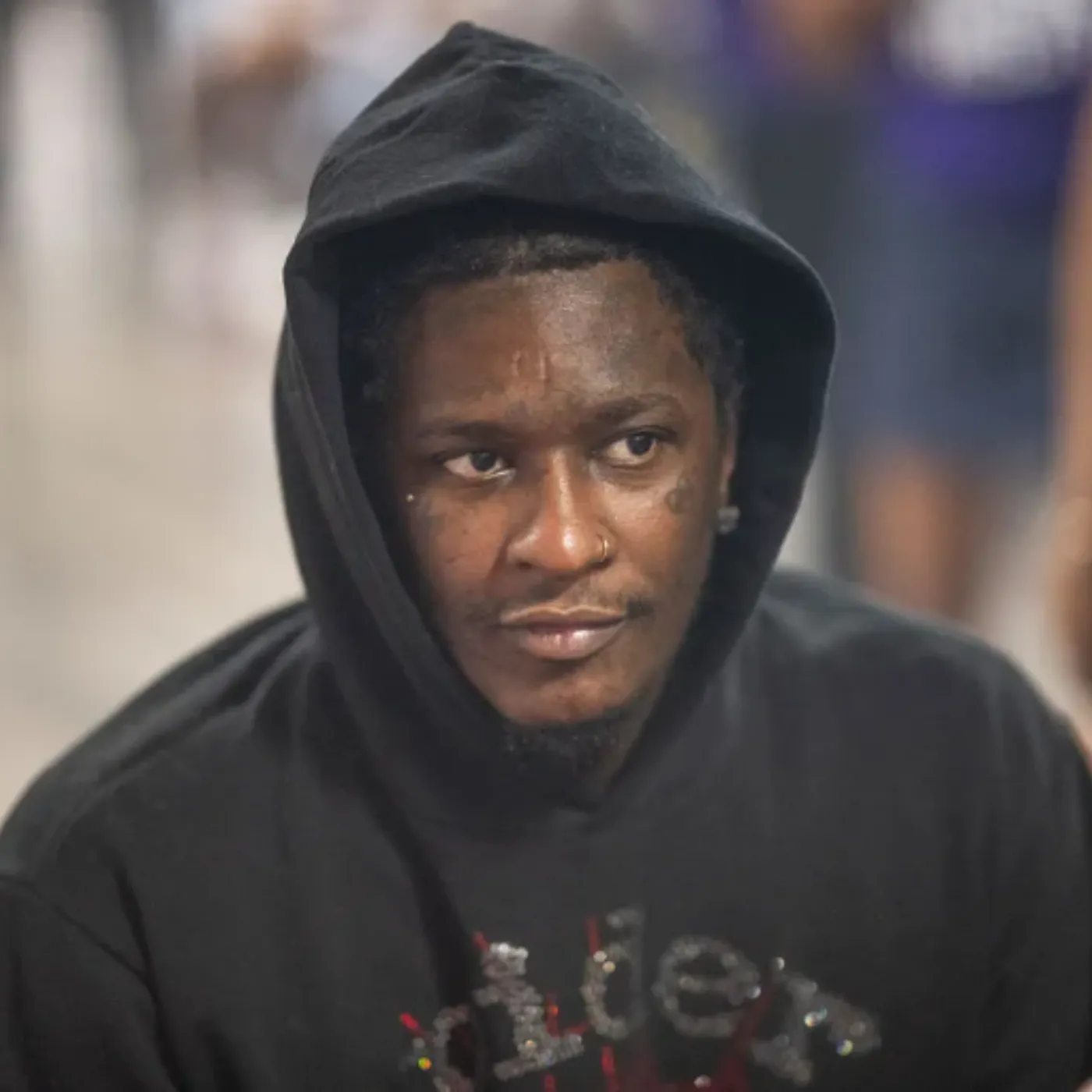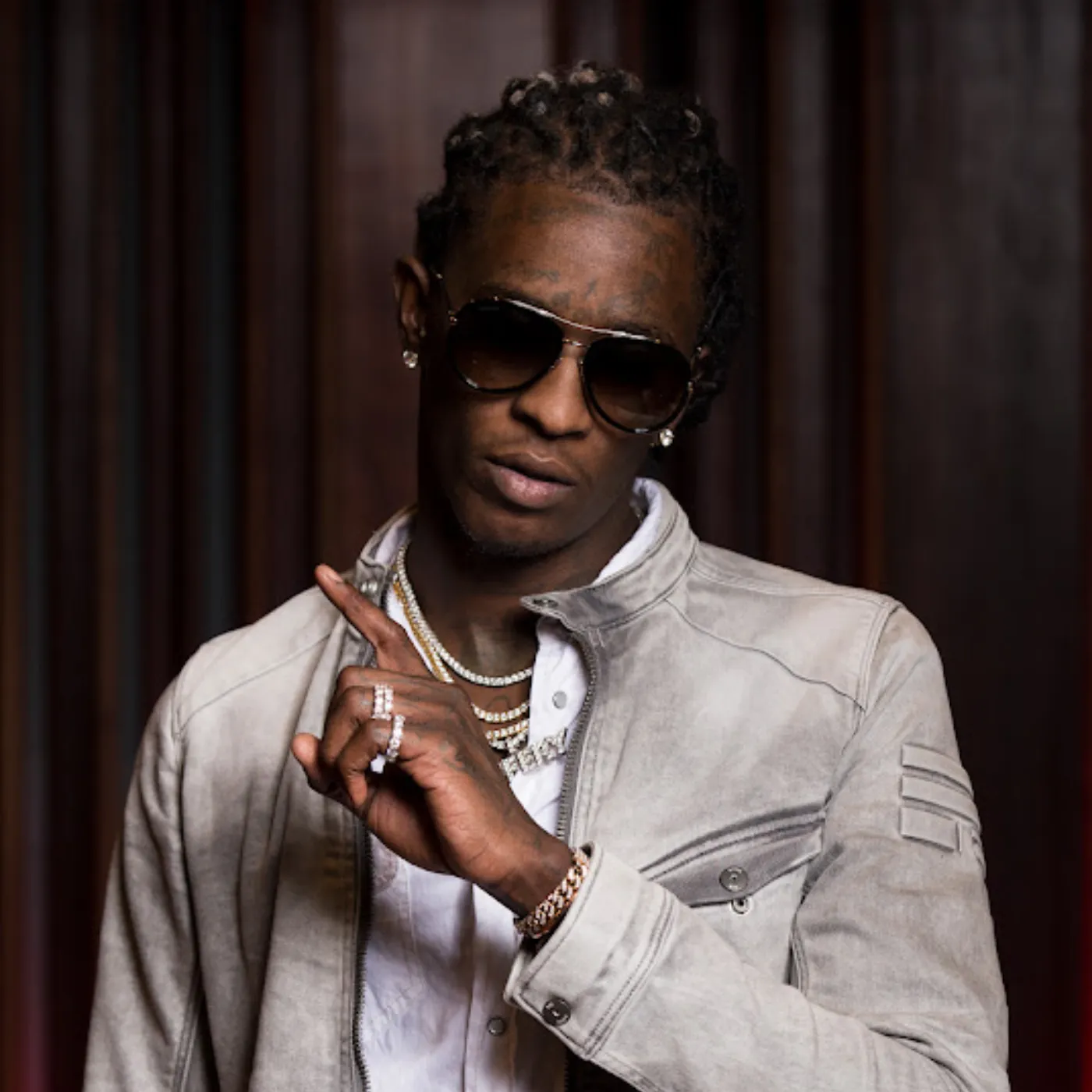

Young Thug Admits What Makes Him Feel ‘Less of a Man’ — And It’s Not What You Think
Atlanta rapper Young Thug has never been one to shy away from speaking his mind. Known for his bold personality and unfiltered honesty, Thug has once again ignited conversation after comments made on The Pivot Podcast. The Grammy-winning artist, currently navigating legal battles and personal challenges, opened up about his views on therapy, relationships, and masculinity—and what he said has left many people divided.
The rapper revealed that he doesn’t personally believe in seeking professional counseling. Instead, he chooses to rely on family guidance, close friends, and mentors as his trusted sources of wisdom. But what really grabbed attention was his candid admission that he would feel “less of a man” if his partner sought therapy. For Young Thug, therapy represents a kind of rejection—an outside voice being valued more than his own.

This statement not only reveals personal insecurities but also shines a light on broader cultural debates about mental health in hip-hop, masculinity, and emotional support systems.
Young Thug’s Personal Philosophy on Therapy
During the podcast conversation, Young Thug explained why therapy doesn’t resonate with him.
“My big sister, my big brother, my dad, my mom, my OGs… I listen to y’all,” he said, emphasizing that his inner circle provides all the wisdom he needs.
For the Atlanta rapper, advice rooted in real-life experiences from trusted people carries more weight than the counsel of a licensed therapist. This perspective reflects a sentiment shared by many across different communities, especially in hip-hop culture, where self-reliance, toughness, and trust in elders are often prioritized.
To Thug, therapy feels unnecessary when the guidance of loved ones is available. It’s not about dismissing wisdom, but rather about questioning the need to bring in an outsider who doesn’t share the same lived experiences.
Why He Would Feel “Less of a Man”
The most headline-grabbing part of Young Thug’s comments came when he explained how he would feel if his partner sought professional help.
He admitted that if his woman went to a therapist, it would make him feel inadequate:
“It’s like damn, you’ll actually call somebody and listen to what they have to say over me? Instead of listen to what I’m telling you.”
This statement reflects how deeply masculinity, pride, and emotional responsibility are intertwined in his worldview. For Thug, being a man means being the protector, the provider, and the emotional anchor. If his partner needs someone else’s advice, it threatens his sense of purpose in the relationship.
The idea of therapy, in his eyes, is not just about healing—it’s about competition. He sees it as another figure stepping into a role he believes he should fulfill as a man.
Masculinity and the Stigma Around Mental Health
Young Thug’s comments highlight a long-standing tension between masculinity and mental health. In hip-hop culture—and in many communities worldwide—seeking therapy is often stigmatized as a sign of weakness. Men are expected to remain strong, handle challenges on their own, and avoid showing vulnerability.
By equating therapy with being “less of a man,” Thug echoes the complicated ways pride and ego shape male identity. His stance isn’t unique; it mirrors a broader mindset where relying on professional help is perceived as undermining independence.
However, his openness also reveals something important: beneath the tough exterior is a man willing to admit his insecurities. For many men, publicly acknowledging feelings of inadequacy or fear of being undermined is rare.
Therapy vs. Family Guidance: A Cultural Clash
Young Thug made it clear that he values family wisdom above all else. To him, the experiences of parents, siblings, and mentors hold more authenticity than advice from someone trained in psychology.
This preference underscores a cultural clash:
Therapists vs. Elders—Professionals bring scientific training, while elders bring lived experience.
Confidentiality vs. Community – Therapy offers privacy, while family guidance often involves collective discussions.
Individual Growth vs. Cultural Tradition—Therapy focuses on personal mental health, while community advice often emphasizes resilience and loyalty.
For Thug, leaning on family is not only practical but also symbolic of loyalty and cultural strength. Yet, this view raises the question: Can both approaches coexist?
Reactions to Young Thug’s Statement
Unsurprisingly, Young Thug’s words have sparked debate. Supporters argue that his loyalty to family and community is admirable, showing respect for tradition and the people who raised him. Critics, however, believe that dismissing therapy reinforces harmful stigmas around mental health.
Some highlight that his statement reflects deep-rooted fears of rejection. Others suggest that while his honesty is refreshing, his views also underline the need to educate communities about the benefits of therapy.
What cannot be ignored is that Thug’s comments, whether intentional or not, have pushed mental health conversations into the spotlight once again.
The Role of Mental Health in Hip-Hop
Hip-hop has long been associated with themes of resilience, struggle, and self-reliance. Many rappers project toughness as a survival mechanism, often avoiding open discussions about vulnerability. But in recent years, artists like Kid Cudi, Logic, and Kanye West have spoken openly about therapy and mental health, breaking cultural barriers.
Young Thug’s perspective shows that while progress is being made, stigma still lingers. His words demonstrate how the culture of toughness often collides with modern discussions about emotional well-being.
For younger fans listening to these conversations, the impact is significant. On one hand, they see an influential rapper questioning therapy. On the other, they also witness a rare moment of honesty about male insecurity.
Young Thug and Mariah The Scientist: Relationship Struggles
Adding another layer to the discussion is Young Thug’s relationship with singer Mariah The Scientist. Their romance has seen ups and downs, with private jail phone calls surfacing online and creating headlines.
While Thug’s comments were not directed specifically at Mariah, his words inevitably bring attention to how his philosophy on therapy might affect their relationship. If his partner ever turned to professional help, it could test his beliefs about manhood and emotional responsibility.
This dynamic illustrates how personal views on therapy don’t just shape individuals—they influence relationships too.
Why His Honesty Matters
Despite the controversy, Young Thug’s willingness to be vulnerable is important. Many men silently carry the same fears but never voice them. By admitting that therapy would make him feel “less of a man,” Thug has unintentionally encouraged dialogue around how masculinity is defined.
His words might reinforce stigma for some, but for others, they open the door to questioning outdated norms. In a way, his honesty is a step toward progress because it highlights the emotional battles men often hide.
Rethinking Masculinity and Therapy
The debate sparked by Young Thug’s comments brings us to a bigger question: Does seeking therapy diminish manhood?
The answer, of course, is no. Therapy is not about replacing family guidance or undermining relationships. It is about creating balance, self-awareness, and growth. Seeking professional help doesn’t make anyone weaker—it often makes them stronger by equipping them with tools to handle life’s challenges.
In fact, therapy and family wisdom can complement each other. Elders provide cultural grounding and shared experiences, while therapists offer strategies rooted in science. Together, they create a fuller support system.
Young Thug, Therapy, and the Future of the Conversation
Young Thug’s statement that he would feel “less of a man” if his woman needed a therapist has stirred controversy, but it has also sparked necessary discussions about masculinity, pride, vulnerability, and the role of therapy in relationships.
While his perspective reflects lingering stigmas, it also shows the complexity of male identity in modern culture. By choosing honesty over silence, Thug has inadvertently advanced the conversation on how men perceive emotional support.
For fans and critics alike, the key takeaway is that therapy is not about weakness or rejection—it’s about growth and understanding. And while family wisdom will always hold value, combining it with professional insight could create stronger, healthier relationships.
In the end, Young Thug’s words remind us that redefining masculinity is still a work in progress. The fact that these conversations are happening—especially on such public platforms—means society is slowly moving toward a healthier understanding of what it truly means to be a man.



















